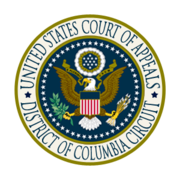A common carrier in common law countries is a person or company that transports goods or people for any person or company and is responsible for any possible loss of the goods during transport. A common carrier offers its services to the general public under license or authority provided by a regulatory body, which has usually been granted "ministerial authority" by the legislation that created it. The regulatory body may create, interpret, and enforce its regulations upon the common carrier with independence and finality as long as it acts within the bounds of the enabling legislation.

The Federal Communications Commission (FCC) is an independent agency of the United States government that regulates communications by radio, television, wire, satellite, and cable across the United States. The FCC maintains jurisdiction over the areas of broadband access, fair competition, radio frequency use, media responsibility, public safety, and homeland security.

An Internet service provider (ISP) is an organization that provides myriad services related to accessing, using, managing, or participating in the Internet. ISPs can be organized in various forms, such as commercial, community-owned, non-profit, or otherwise privately owned.

Network neutrality, often referred to as net neutrality, is the principle that Internet service providers (ISPs) must treat all Internet communications equally, offering users and online content providers consistent transfer rates regardless of content, website, platform, application, type of equipment, source address, destination address, or method of communication. Net neutrality was advocated for in the 1990s by the presidential administration of Bill Clinton in the United States. Clinton's signing of the Telecommunications Act of 1996, an amendment to the Communications Act of 1934. In 2025, an American court ruled that internet companies should not be regulated like utilities, which weakened net neutrality regulation.
National Cable & Telecommunications Association v. Brand X Internet Services, 545 U.S. 967 (2005), was a United States Supreme Court case in which the court held that decisions by the Federal Communications Commission (FCC) on how to regulate Internet service providers are eligible for Chevron deference, in which the judiciary defers to an administrative agency's expertise under its governing statutes. While the case concerned routine regulatory processes at the FCC and applied to interpretations of the Communications Act of 1934 and Telecommunications Act of 1996, the ruling has become an important precedent on the matter of regulating network neutrality in the United States.
In the United States, net neutrality—the principle that Internet service providers (ISPs) should make no distinctions between different kinds of content on the Internet, and to not discriminate based on such distinctions—has been an issue of contention between end-users and ISPs since the 1990s. With net neutrality, ISPs may not intentionally block, slow down, or charge different rates for specific online content. Without net neutrality, ISPs may prioritize certain types of traffic, meter others, or potentially block specific types of content, while charging consumers different rates for that content.
Net neutrality in Canada is a debated issue, but not to the degree of partisanship in other nations, such as the United States, in part because of its federal regulatory structure and pre-existing supportive laws that were enacted decades before the debate arose. In Canada, Internet service providers (ISPs) generally provide Internet service in a neutral manner. Some notable incidents otherwise have included Bell Canada's throttling of certain protocols and Telus's censorship of a specific website critical of the company.

Comcast Corp. v. FCC, 600 F.3d 642, is a case at the United States Court of Appeals for the District of Columbia holding that the Federal Communications Commission (FCC) does not have ancillary jurisdiction over the content delivery choices of Internet service providers, under the language of the Communications Act of 1934. In so holding, the Court vacated a 2008 order issued by the FCC that asserted jurisdiction over network management policies and censured Comcast from interfering with its subscribers' use of peer-to-peer software. The case has been regarded as an important precedent on whether the FCC can regulate network neutrality.
The Federal Communications Commission Open Internet Order of 2010 is a set of regulations that move towards the establishment of the internet neutrality concept. Some opponents of net neutrality believe such internet regulation would inhibit innovation by preventing providers from capitalizing on their broadband investments and reinvesting that money into higher quality services for consumers. Supporters of net neutrality argue that the presence of content restrictions by network providers represents a threat to individual expression and the rights of the First Amendment. Open Internet strikes a balance between these two camps by creating a compromised set of regulations that treats all internet traffic in "roughly the same way". In Verizon v. FCC, the Court of Appeals for the D.C. Circuit vacated portions of the order that the court determined could only be applied to common carriers.

Ajit Varadaraj Pai is an American lawyer who served as chairman of the Federal Communications Commission (FCC) from 2017 to 2021. He has been a partner at the private-equity firm Searchlight Capital since April 2021.
The Internet Association (IA) was an American lobbying group based in Washington, D.C., which represented companies involved in the Internet. It was founded in 2012 by Michael Beckerman and several companies, including Google, Amazon, eBay, and Facebook, and was most recently headed by president and CEO K. Dane Snowden before shutting down.
Fight for the Future is a nonprofit advocacy group in the area of digital rights founded in 2011. The group aims to promote causes related to copyright legislation, as well as online privacy and censorship through the use of the Internet.

Verizon Communications Inc. v. Federal Communications Commission, 740 F.3d 623, was a case at the U.S. Court of Appeals for the D.C. Circuit vacating portions of the FCC Open Internet Order of 2010, which the court determined could only be applied to common carriers and not to Internet service providers. The case was initiated by Verizon, which would have been subjected to the proposed FCC rules, though they had not yet gone into effect. The case has been regarded as an important precedent on whether the FCC can regulate network neutrality.

Internet Slowdown Day, part of the "Battle for the Net" initiative, was a series of protests against the repeal of net neutrality laws coordinated by websites and advocacy groups in the United States occurring on September 10, 2014. The official site explains: "On September 10th, sites across the web will display an alert with a symbolic 'loading' symbol and promote a call to action for users to push comments to the FCC, Congress, and the White House."
Net neutrality law refers to laws and regulations which enforce the principle of net neutrality.

United States Telecom Association v. FCC, 825 F. 3d 674, was a case at the U.S. Court of Appeals for the D.C. Circuit upholding an action by the Federal Communications Commission (FCC) the previous year in which broadband Internet was reclassified as a "telecommunications service" under the Communications Act of 1934, after which Internet service providers (ISPs) were required to follow common carrier regulations.
"Net Neutrality" is the first segment devoted to net neutrality in the United States of the HBO news satire television series Last Week Tonight with John Oliver. It aired for 13 minutes on June 1, 2014, as part of the fifth episode of Last Week Tonight's first season.
Net neutrality is the principle that governments should mandate Internet service providers to treat all data on the Internet the same, and not discriminate or charge differently by user, content, website, platform, application, type of attached equipment, or method of communication. For instance, under these principles, internet service providers are unable to intentionally block, slow down or charge money for specific websites and online content.
The California Internet Consumer Protection and Net Neutrality Act of 2018 is a law in California designed to protect net neutrality. It was signed into law on September 30, 2018.
"Net Neutrality II" is the second segment of the HBO news satire television series Last Week Tonight with John Oliver devoted to net neutrality in the United States. It aired on May 7, 2017, for 19 minutes, as part of the eleventh episode of the fourth season, and the 100th episode overall.







